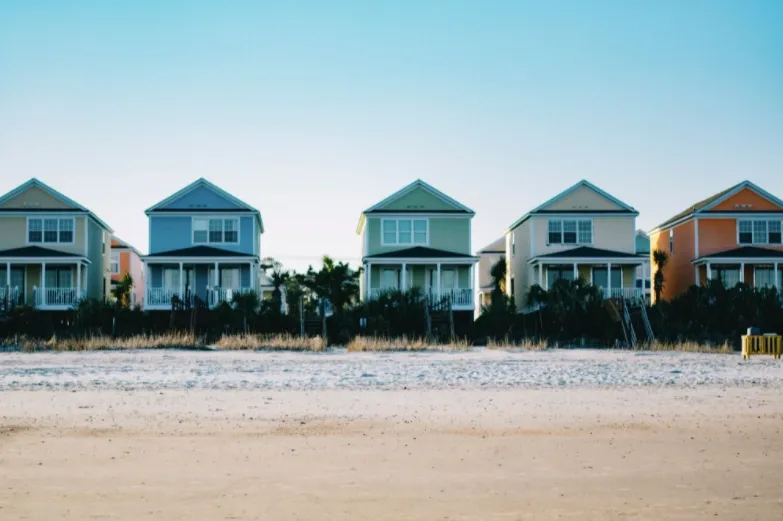Have you ever thought about buying a second home? Do you love the idea of being able to escape to paradise whenever you want, knowing full-well that your favorite accommodations will be waiting for you? Well, if that’s your dream, it might be time to start thinking about how you can turn it into a reality. Fortunately, buying a second home has never been easier. You can consider potential houses all over the world from the comfort of your current home.
1. Understand Your “Why”
Buying a second home is a big decision, so it’s important that it’s not an impulsive one.
Some people return from an especially enjoyable vacation and immediately get busy looking for properties in the area that they could buy as a second house. Even if it takes them months or even a year to actually close, it’s still impulsive.
Instead, become familiar with the area throughout the year (or, at least, when you’re most likely to stay there). A small, quiet town on the beach may turn upside down when tourist season begins.
Even if you are extremely familiar with a location, consider other relevant details, like:
- Tax Rates
- Cost-of-Living
- Resale Values
- Amenities
- Economic Trends
In short, you should put just as much thought into buying your second home as you did your first.
2. Figure Out Your Budget
Of course, even if you’re positive that buying a second home makes sense, your budget might disagree.
Ask yourself the following questions before going through with this decision:
- Can I pay cash for the vacation home?
- Is my primary residence already paid for?
- Am I saving 15% of my income for retirement?
- Do I have a three-to-six-month emergency fund in place?
- Am I saving for my kids’ college?
Obviously, the weight of these questions depends on your unique situation. You may not have children, or they may have already graduated. You may have saved more than enough for your retirement a long time ago.
Also, look into the ongoing maintenance and insurance costs. You don’t want something like your utility bill or flood insurance to come as a shock.
Sufficed to say, though, buying a second home should never feel like a financial risk. If it does, that just means you need to wait until your budget is ready.
3. Explore Your Mortgage Options
Now, some experts would advise that you never take out a mortgage to buy a second house.
Again, this is the type of decision you’ll have to make based on your own unique financial situation.
If you do decide to explore your options for second-home mortgages, know that the government won’t help you. For example, as amazing as FHA loans are, you can’t use them for any home that isn’t going to be your primary residence.
Instead, you’ll need to apply for a conventional mortgage, which will mean a higher down payment and lower debt-to-income ratio in order to qualify. If you are still paying for your first mortgage, expect income requirements to be higher, too. Conventional loans also require a credit score of at least 620.
Don’t let these stipulations intimidate you, though. Obviously, they haven’t been enough to stop countless people from securing mortgages for their second homes.
4. Consider Airbnb to Make Money from Your Second Home
Speaking of paying for your second house, consider renting it out as an Airbnb when you won’t be using it.
This has become an extremely popular option over the last five years or so. Many people who own second homes are actually able to make their mortgage payments based solely on renting out their houses when they’d otherwise be left empty.
Best of all, once you develop a system for putting your second home on Airbnb (e.g. your contract, how you screen tenants, etc.), the process becomes largely passive.
In fact, you can even outsource the management of your rental. Have someone else take care of cleaning your second house, preparing it for the next rental, and handling any questions renters have while staying there. All you have to do is collect regular checks.
Just be sure you familiarize yourself with potential laws and rules against Airbnbs where you’re hoping to live.
For example, some local governments have banned or otherwise placed restrictions on using second homes as rental properties on Airbnb. The same goes for homeowners’ associations (HOAs). Some forbid owners from renting their homes out, whether it’s through Airbnb or some other arrangement.
5. Work with a Realtor
A lot of people assume that they don’t need a real estate agent when they buy a second home. After all, they’ve clearly already been through the purchasing process once, plus they know exactly where they want to live.
What would be the point of paying a real estate agent for help?
First, even if you know the area you’re considering, you can’t possibly know it as well as a real estate agent who has been practicing there for years. They can tell you about the local market, seasonal population changes, and much more.
Second, they’ll help you negotiate the terms of your offer. This is invaluable, as it’s all-too-easy to pay far more for a second home than you absolutely must. The same goes for leaving out favorable clauses and contingencies.
If you’re looking to purchase a second home or exploring you’re options, reach out to us here at The Blume Group.
by Authors for SimpleShowing, 10/28/2019
For more information, please contact us here.



